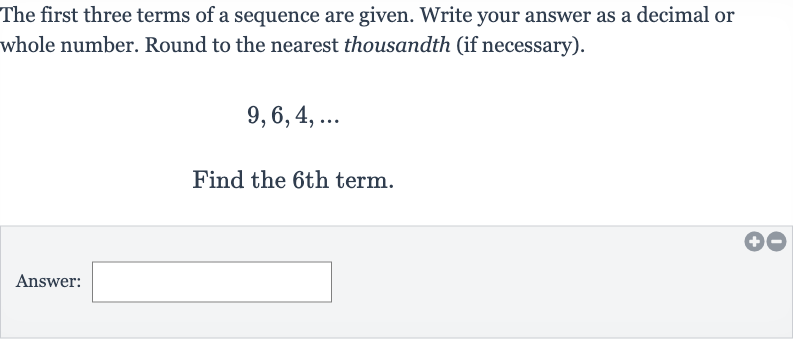AI tutor
Welcome to Bytelearn!
Let’s check out your problem:

The first three terms of a sequence are given. Write your answer as a decimal or whole number. Round to the nearest thousandth (if necessary).Find the th term.Answer:
Full solution
Q. The first three terms of a sequence are given. Write your answer as a decimal or whole number. Round to the nearest thousandth (if necessary).Find the th term.Answer:
- Identify Pattern: Identify the pattern in the sequence.The given sequence is To find the pattern, we look at the differences between consecutive terms.The difference between the first and second term is .The difference between the second and third term is .The differences are not constant, so this is not an arithmetic sequence.We need to look for another type of pattern, such as a geometric sequence or a sequence with a varying difference.
- Check Geometric Sequence: Check for a geometric sequence.A geometric sequence is one where each term after the first is found by multiplying the previous term by a constant called the common ratio .To find the common ratio, we divide the second term by the first term and the third term by the second term.The common ratio between the second and first term is .The common ratio between the third and second term is .Since the common ratio is the same for these terms, we can conclude that this is a geometric sequence with a common ratio of .
- Use nth Term Formula: Use the formula for the nth term of a geometric sequence to find the th term.The formula for the nth term of a geometric sequence is , where is the first term and is the common ratio.The first term is , the common ratio is , and we want to find the th term .So, .
- Calculate th Term: Calculate the th term. (since and )Since we need to round to the nearest thousandth, the th term is approximately .
More problems from Powers with decimal bases
QuestionGet tutor help
